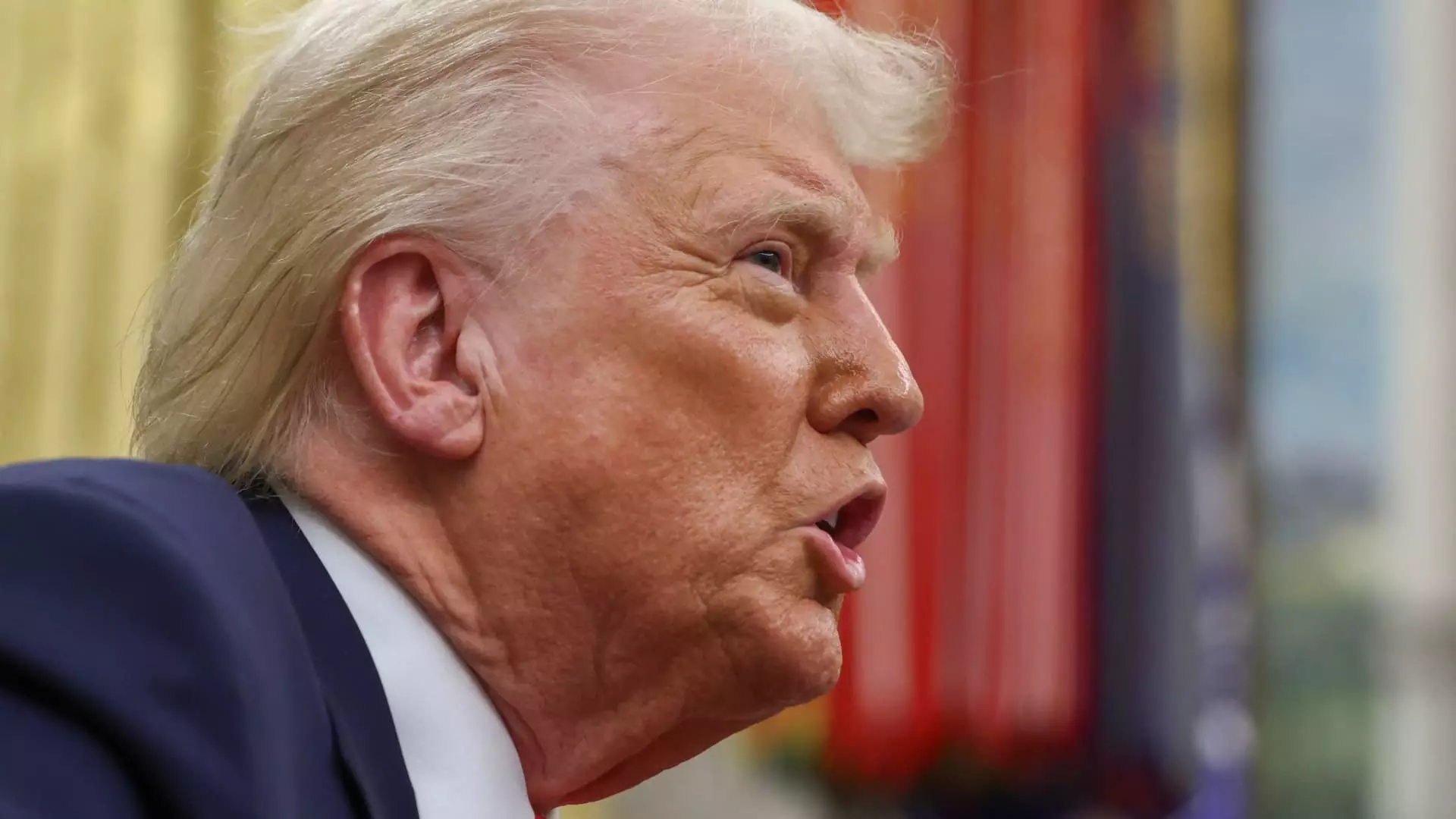This past week, financial markets experienced a significant downturn, leaving investors reeling as they grappled with the chaotic implications of President Donald Trump’s tariff policies. The decline prompted a wave of reactions from financial analysts, many labeling the market’s plunge as an inevitable consequence of the president’s unyielding and unpredictable decisions. Instead of taking accountability for the fallout, Trump hastily redirected blame toward allegedly ominous “globalist” influences, a term he has wielded with increasing fervor over his administration. This shift of responsibility raises serious questions about the nature of leadership in turbulent times.
Globalism: A Catch-All Phrase or a Dangerous Concept?
Trump’s characterization of “globalism” serves as a blanket indictment, a rhetoric that he has relied on as a cornerstone of his nationalist, isolationist ideology. However, terms like “globalist” evoke far more than just a critique of economic theories; they tap into historical prejudices and xenophobic narratives. It’s alarming that such language has become politicized, transforming economic policy debates into battlegrounds where ideologies clash. Critics argue that Trump’s invocation of this term not only dilutes legitimate economic criticism but borders dangerously on antisemitic conspiracy theories, framing global trade realities as plots orchestrated by shadowy elites. While there is merit to critiquing globalization and its inequities, the vocabulary employed carries consequences that extend beyond mere political discourse.
Nationalism Versus Globalism: A False Dichotomy
It is essential to recognize that the binary framing of nationalism versus globalism is inherently flawed. The notion that the United States must choose one over the other ignores the complexities that come with being a participant in a global economy. Trump’s immediate responses to market fluctuations, including imposing tariffs and claiming exemption rules were unrelated to the sell-off, display a stark misunderstanding of interdependence in trade relationships. Protecting national interests does not require drifting into isolationism; rather, it necessitates a thoughtful pivot toward fair trade agreements that do not merely serve as weapons in economic warfare.
The Real Cost of Tariffs: Economic Ignorance
It is disheartening to witness the consequences of a reckless tariff policy manifested in the raw data of a market decline. History has shown that tariffs can lead to increased prices for consumers, disruption in supply chains, and damaged relationships with key trading partners. The attempt to rein in perceived offenders through punitive measures not only risks immediate economic repercussions but also raises the stakes for future relations. Trump’s dismissal of the effects of his policies, stating, “I’m not even looking at the market,” reflects a level of economic ignorance that undermines the very stability he insists on restoring.
Fragile Alliances and Economic Fallout
The ongoing tensions resulting from Trump’s tariff policies extend beyond mere market numbers. As he toyed with the notion of an overhaul of NATO interactions while spouting rhetoric against “globalist” countries, we were reminded of a harsh reality: the world doesn’t operate in isolation. U.S. economic decisions resonate globally, impacting international alliances that have taken decades to forge. The dismissive attitude towards allied nations — labeled as “globalists’ — may weaken are relations further, alienating partners crucial to strong economic and political frameworks.
A Rallying Call for Thoughtful Leadership
In the face of this upheaval, it’s imperative for leaders to realize that global economics should not be treated as a zero-sum game where one nation emerges at the expense of another. The turmoil observed in the financial markets and the international fallout with trading partners serve as sharp reminders of the necessity for diplomatic wisdom, mutual understanding, and strategic foresight. A modern economic approach must merge the ambitions of nationalism with the realities of globalization, crafting a landscape where fair trade reigns supreme without the antagonistic terminology that clouds genuine dialogue.
The markets are not merely a reflection of policies; they are mirrors of societal values and leadership styles. It is in recognizing this connection that we can foster an economic environment where all parties perceive justice, equity, and opportunity—a mission that, in times such as these, seems lost under the weight of political rhetoric and jargon.

